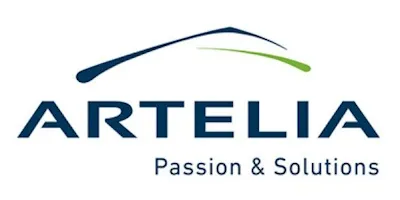Résultat de votre recherche
2 annonces disponibles aujourd'hui

Stage - Ingénieur/Ingénieure en Data Engineering ou Data Science - Lyon
Artelia
Stage Data / Mathématiques Appliquées Rhône entre aujourd'hui et avril 2026 de 4 à 6 mois

Mobilité intelligente : benchmark d'APIs géospatiales et développement d'un service Python intégré
IFP Energies nouvelles - Sciences et Technologies du Numérique
Stage Data / Mathématiques Appliquées Hauts-de-Seine entre aujourd'hui et mai 2026 5 mois
Trouver un stage, une alternance ou un job étudiant : notre guide
La recherche d'un stage, d'une alternance ou d'un job étudiant est une étape cruciale dans votre parcours académique et professionnel. Chez iQuesta, nous mettons à votre disposition des milliers d'offres dans tous les secteurs d'activité pour vous aider à trouver l'opportunité qui correspond à vos attentes, à votre niveau d'études et à votre projet professionnel.
Le stage : un tremplin pour votre carrière
Le stage constitue souvent la première expérience professionnelle significative d'un étudiant. Il permet de mettre en pratique les connaissances théoriques acquises en formation, de développer de nouvelles compétences et de se familiariser avec le monde de l'entreprise. Pour trouver le stage idéal, nous vous conseillons de :
- Définir clairement vos objectifs professionnels et vos attentes
- Rechercher des offres en adéquation avec votre formation et vos centres d'intérêt
- Préparer un CV et une lettre de motivation personnalisés pour chaque candidature
- Commencer vos recherches plusieurs mois avant la période de stage souhaitée
Sur iQuesta, vous pouvez filtrer les offres de stage par secteur d'activité, localisation, durée ou encore niveau d'études requis pour trouver rapidement les opportunités qui vous correspondent.
L'alternance : allier théorie et pratique
L'alternance est une formule qui permet de combiner formation théorique dans un établissement d'enseignement et formation pratique en entreprise. Elle se décline sous deux formes principales : le contrat d'apprentissage et le contrat de professionnalisation. Les avantages de l'alternance sont nombreux :
- Acquisition d'une expérience professionnelle significative tout en poursuivant ses études
- Financement de sa formation grâce à une rémunération mensuelle
- Développement de compétences techniques et transversales valorisées par les recruteurs
- Possibilité d'être embauché par l'entreprise à l'issue de l'alternance
Pour trouver un contrat d'alternance, nous vous recommandons de consulter régulièrement les offres publiées sur iQuesta et de postuler à celles qui correspondent à votre profil et à votre projet professionnel.
Le job étudiant : concilier études et vie professionnelle
Les jobs étudiants permettent de financer ses études tout en acquérant une première expérience professionnelle. Ils se caractérisent généralement par des horaires flexibles (soirs, week-ends, vacances scolaires) compatibles avec un emploi du temps universitaire. De nombreux secteurs recrutent des étudiants : restauration, commerce, accueil, animation, garde d'enfants, soutien scolaire...
Pour trouver un job étudiant adapté à votre situation, consultez notre sélection d'offres et utilisez nos filtres pour identifier celles qui correspondent à vos disponibilités et à votre localisation.
Le premier emploi : débuter sa carrière professionnelle
Après l'obtention de votre diplôme, vous êtes à la recherche de votre premier emploi. Cette étape marque le véritable début de votre carrière professionnelle. Sur iQuesta, nous proposons de nombreuses offres destinées aux jeunes diplômés dans tous les secteurs d'activité. Pour augmenter vos chances de décrocher votre premier poste, pensez à :
- Mettre en avant vos stages, alternances et jobs étudiants sur votre CV
- Valoriser les compétences que vous y avez développées
- Adapter votre candidature à chaque offre d'emploi
- Soigner votre présence sur les réseaux sociaux professionnels
Que vous recherchiez un stage, une alternance, un job étudiant ou votre premier emploi, iQuesta est là pour vous accompagner dans votre recherche et vous aider à trouver l'opportunité qui vous permettra de développer vos compétences et de construire votre parcours professionnel.





